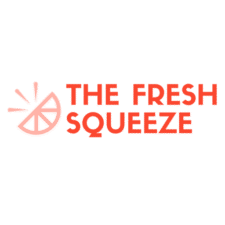Sometimes all you need to turn a sluggish afternoon around is a quick nap. But while naps can boost your energy, focus, and mood, they can also backfire—leaving you groggy or messing with your nighttime sleep.
The secret? It’s all about when and how you nap. Here’s how to harness the power of naps the smart way.
Why Napping Works 💤
A nap gives your brain and body a mini reset. Even short periods of rest can:
-
Improve alertness and concentration
-
Boost memory and learning
-
Reduce stress and improve mood
-
Enhance creativity and problem-solving
No wonder some of the world’s most productive people—like Winston Churchill and Albert Einstein—swore by them.
The Best Time to Nap ⏰
Timing is everything.
-
Midday is ideal: The body naturally dips in energy between 1–3 PM.
-
Avoid late naps: Napping too close to bedtime (after 4–5 PM) can make it harder to fall asleep at night.
Think of naps as a “second wind” for your afternoon, not a replacement for nighttime rest.
How Long Should You Nap? ⏳
The length of your nap can determine whether you wake up refreshed or groggy:
-
10–20 minutes: The “power nap.” Quick, light sleep that boosts energy and alertness without affecting nighttime sleep.
-
30–60 minutes: Can improve memory and learning, but may leave you feeling groggy (sleep inertia) upon waking.
-
90 minutes: A full sleep cycle that enhances creativity, memory, and emotional balance. Best if you’re sleep-deprived—but it’s not for every day.
👉 For most people, 10–20 minutes is the sweet spot.
Tips for the Perfect Nap 🛏️
-
Find a quiet, dark spot. Use an eye mask or blackout curtains if needed.
-
Set an alarm. Prevent oversleeping and post-nap grogginess.
-
Use caffeine strategically. Try a “coffee nap”: drink coffee right before a 20-minute nap. You’ll wake up just as the caffeine kicks in.
-
Stay consistent. If you nap regularly, your body will adjust and use that time more effectively.
When to Skip the Nap ❌
-
If you struggle with insomnia or poor nighttime sleep, naps may make the problem worse.
-
If you nap out of habit but feel sluggish afterward, focus on improving nighttime sleep instead.
Final Thoughts: Rest Smarter, Live Better ✨
Naps aren’t just for kids—they’re a science-backed tool for better energy, sharper focus, and improved mood. By keeping them short, strategic, and well-timed, you can recharge your body without sacrificing a good night’s rest.
So the next time you hit that mid-afternoon slump, don’t fight it. Grab a cozy spot, close your eyes, and let a smart nap do the work.
